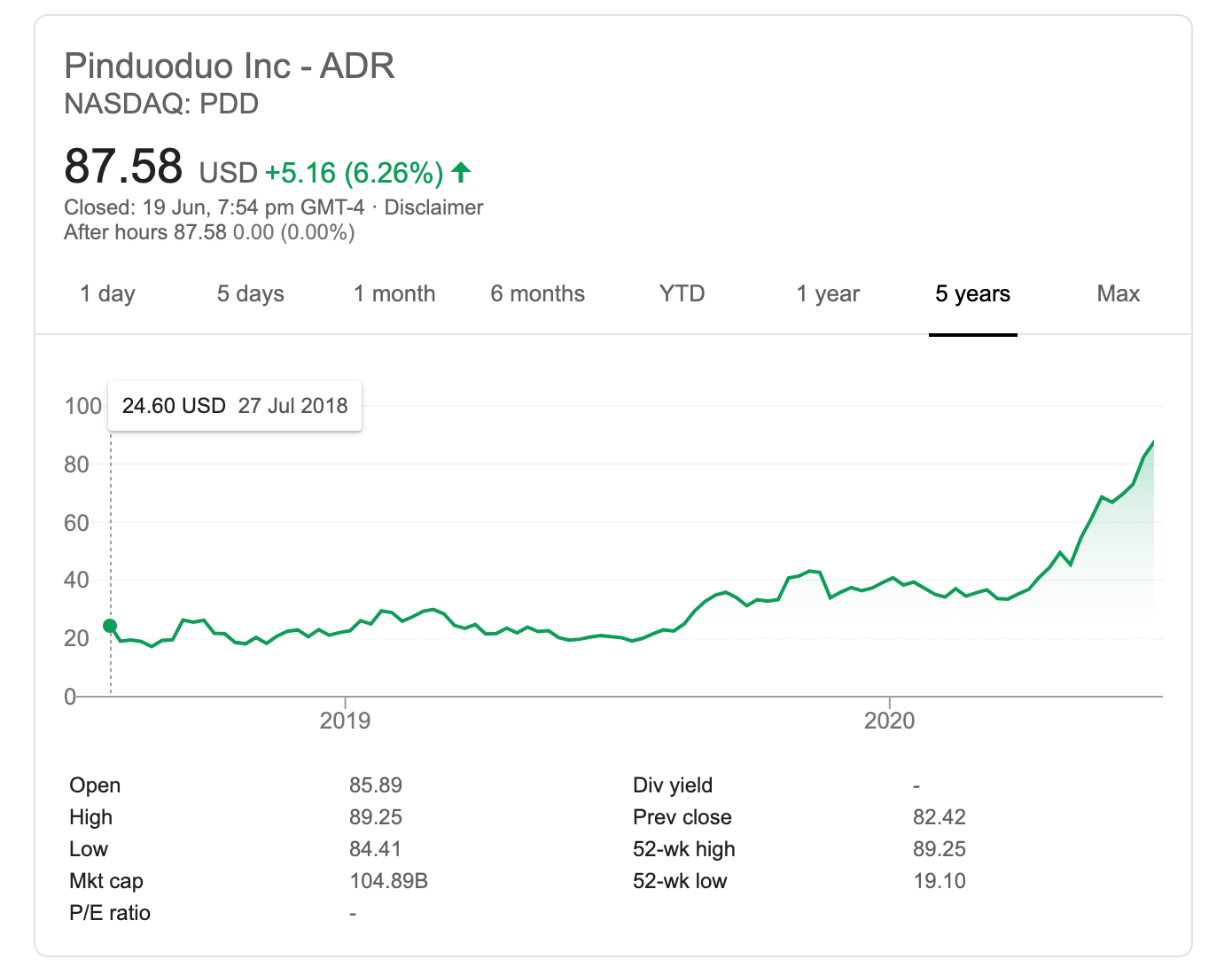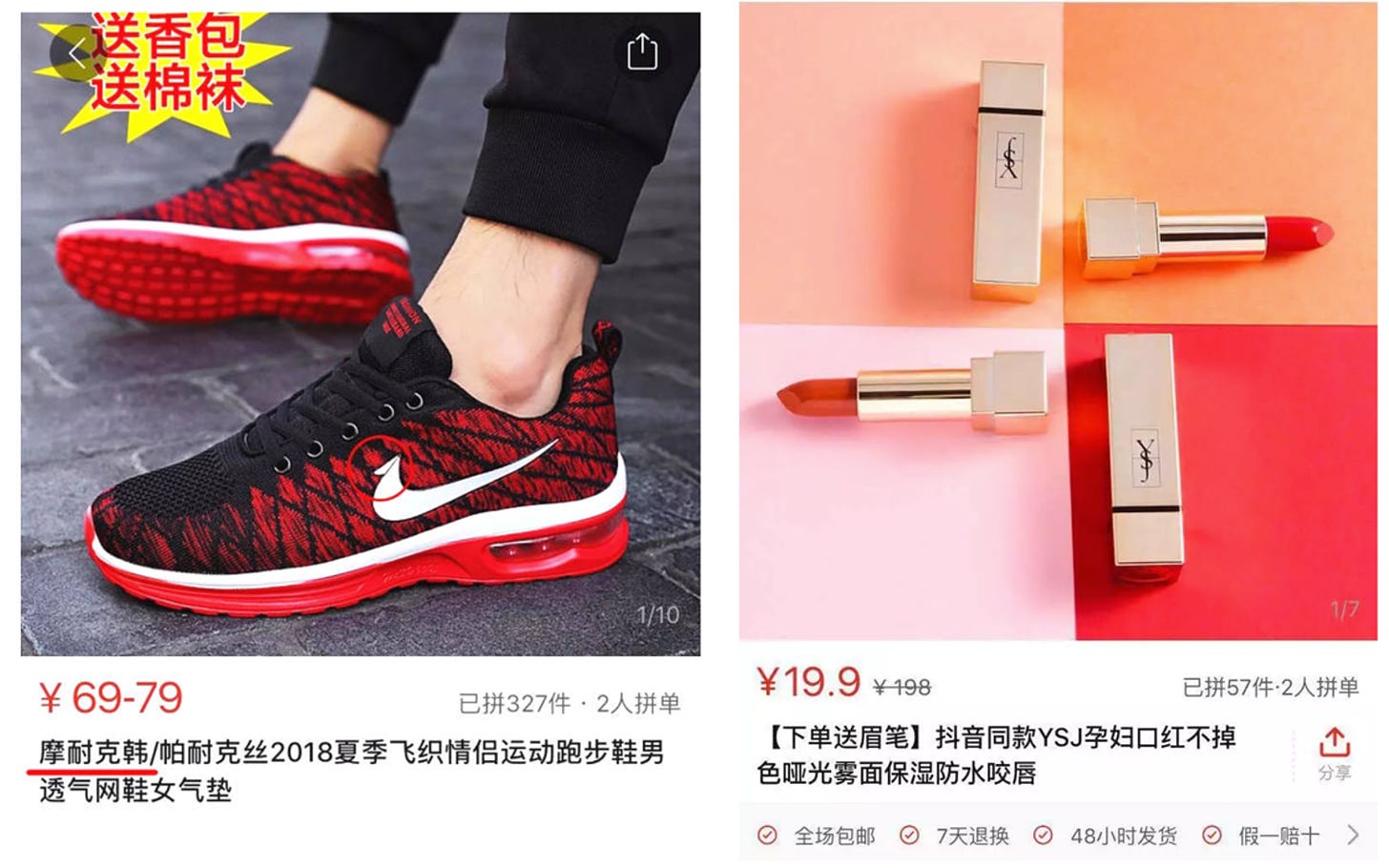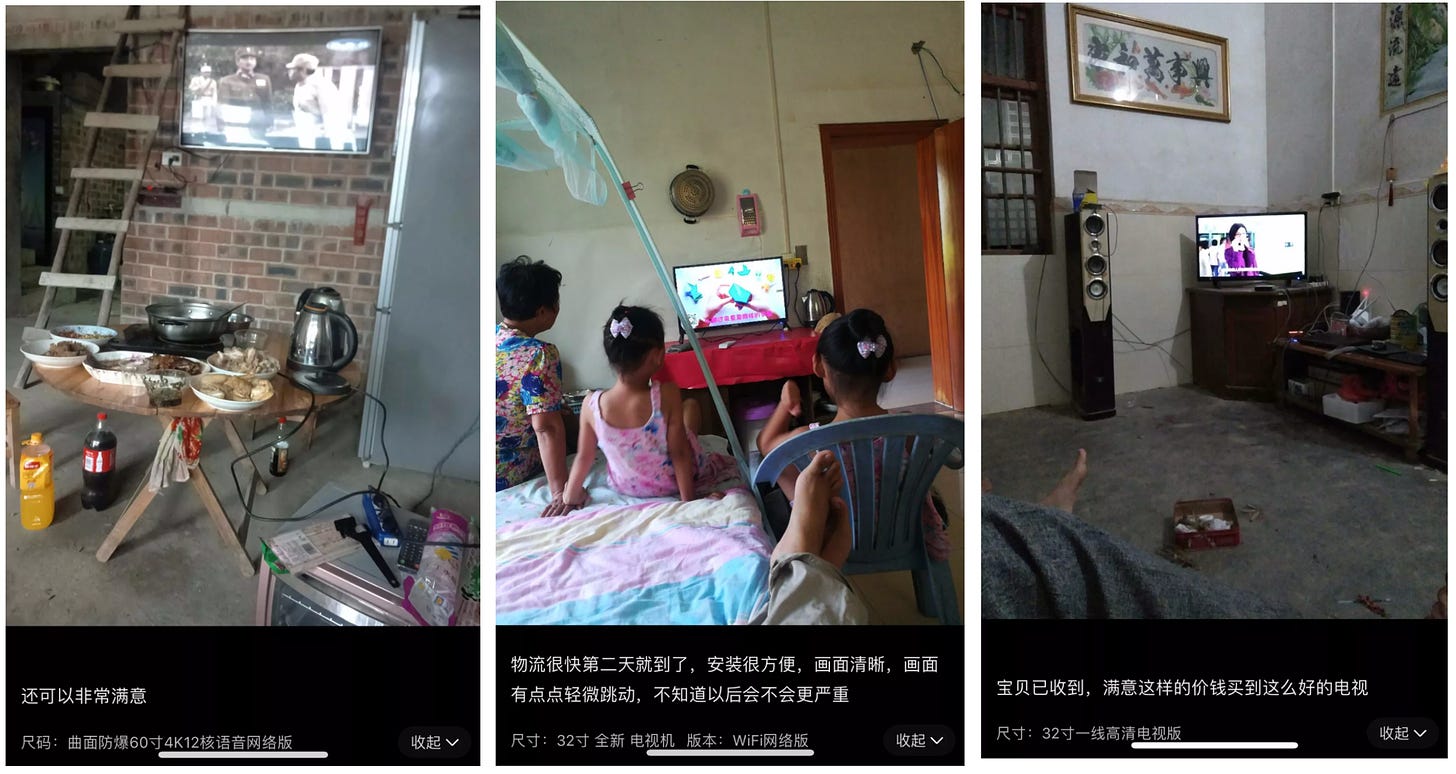21 June 2020 | By DF
Pop quiz: who are the three richest men in China? The exact answer depends on the market valuations at the moment (and the stock market has been even crazier than usual recently).[1] Getting two out of the three is easy: they are the “two Mas”, Pony Ma (founder of Tencent) and Jack Ma (founder of Alibaba). Their rivalry on China’s rich list parallels their companies’ competition to dominate Chinese consumer Internet.
A third person, however, as recently interrupted the duel between the two Mas. He is none other than Colin Huang, founder of Pinduoduo, whose stock has been on a tear recently. According to Forbes.com, as of 21 June 2020, Colin Huang’s net worth of $45.4B exceeds that of Jack Ma ($43.9B) and is second to Pony Ma ($51.5B). Corners of the Chinese Internet suggest he was briefly the richest person in China last week.
While Pinduoduo is far from rivaling Alibaba and Tencent (in market cap as well as tech influence), Colin Huang’s wealth stems from the fact that he owns a much larger proportion of Pinduoduo (~47%), compared to Pony Ma and Jack Ma.

Back in November 2018, I briefly looked into (PPT in Chinese) Pinduoduo (though i have not been actively following the company since). Here are the key highlights of Pinduoduo's origin story:
- Pinduoduo was founded in 2014 and listed on NASDAQ on 26 July 2018.
- The early history of the company was somewhat murky, but sources suggest the original product was actually 拼好货 (Pinhaohuo), whose business model was aimed specifically at selling fruits. 拼多多 (Pinduoduo) was initially created to test the market but ultimately become the more successful product. The two were merged in September 2016.
- Tencent is a key strategic investor in Pinduoduo and WeChat is an integral to Pinduoduo's success.
- Tencent ~18% stake in Pinduoduo is of a piece with its stake in other Chinese e-commerce companies (JD.com, Vipshop, MOGU INC). They are part of Tencent's strategy to counter Alibaba's dominance in e-commerce.
- Typically, this means WeChat directs its massive user traffic to these e-commerce companies, such as via mini-programs (or simply allowing users to share links via WeChat messages, something which is not allowed for Alibaba’s not allowed).
- In contrast to Tencent's "alliance approach" of taking minority stakes, Alibaba typically takes an acquisitive approach, such as buying out ELEME, Lazada, and so on.
- Pinduoduo is often called a “social e-commerce” company because its key insight lies in using Chinese social media—principally WeChat—to radically lower its customer acquisition costs. (I won’t elaborate on the mechanics, which are better covered elsewhere.)
- All items on Pinduoduo come with free shipping (provided by the vendor) and is purchased on its own (i.e. there is no “shopping cart” in Pinduoduo).
- Pinduoduo’s user base skew towards the less developed parts of China and Pinduoduo’s value proposition is providing a good bargain. Like Alibaba, Pinduoduo has been accused of selling counterfeit items.

- In theoretical terms, Pinduoduo’s success is arguably a validation of the Ben Thompson’s aggregation theory and Clayton Christensen’s disruptive innovation.
- Aggregation theory: Pinduoduo’s role in the value chain is almost entirely defined by its aggregation of demand. The actual goods and logistics are provided by commoditized third-party sellers.
- Disruptive innovation: Pinduoduo started out on the low end of e-commerce selling commodities (fruits, daily supplies) and is gradually working its way up the value chain and bringing brands onto its platform. This has posed a threat to Alibaba’s Taobao, which is sandwiched between Pinduoduo on the low-end and JD.com on the high-end.
- Pinduoduo’s rapid rise has also been cited as proof of the “consumption downgrading” trend in China. This strangely refers to two quite distinct trends: (i) higher income Chinese consumers choosing to cut back on discretionary spending and luxury purchases; and (ii) the rise in spending power by lower income Chinese consumers.
- Notably, Chinese Premier Li Keqiang recently announced that there are 600 million Chinese citizens who make (less than) 1,000 yuan (140 USD) every month.
- Or, as Rui Ma puts it more pithily, “the next China is ... China”. China is still very much a developing country and there is still a lot of grow that needs to happen.
- Here are some pictures from reviews on Pinduoduo:

- In November 2018, short-seller Blue Orca alleged that Pinduoduo overstated its revenues, underreported net losses, understated employee headcount and staffing costs, inflated its GMV and recognizes revenue aggressively.
- According to one contemporary report, “[s]ince Blue Orca's report was released on Nov. 14, Pinduoduo's stock price has risen by one third” and closed at $23.14 on 21 November 2018.
- More recently, its share price closed at $87.58 on 19 June 2020. Short-selling is a tough business.
For those matching patterns naively, this final bit is reminiscent of another Chinese company that listed on NASDAQ: Luckin Coffee was accused by short-sellers of falsifying its financial and operating figures on 31 January 2020. These accusations were largely backed up by an internal investigation, whose findings were announced on 2 April 2020 and Luckin Coffee’s shares fell by 80%.
Nothing you read here should be taken as investment advice. Both Luckin Coffee and Pinduoduo have provided incredible value to consumers and I hope at least one of them has a sustainable business model. There is also something poetic if the richest person in China made his fortune by serving the poorest people in China.



